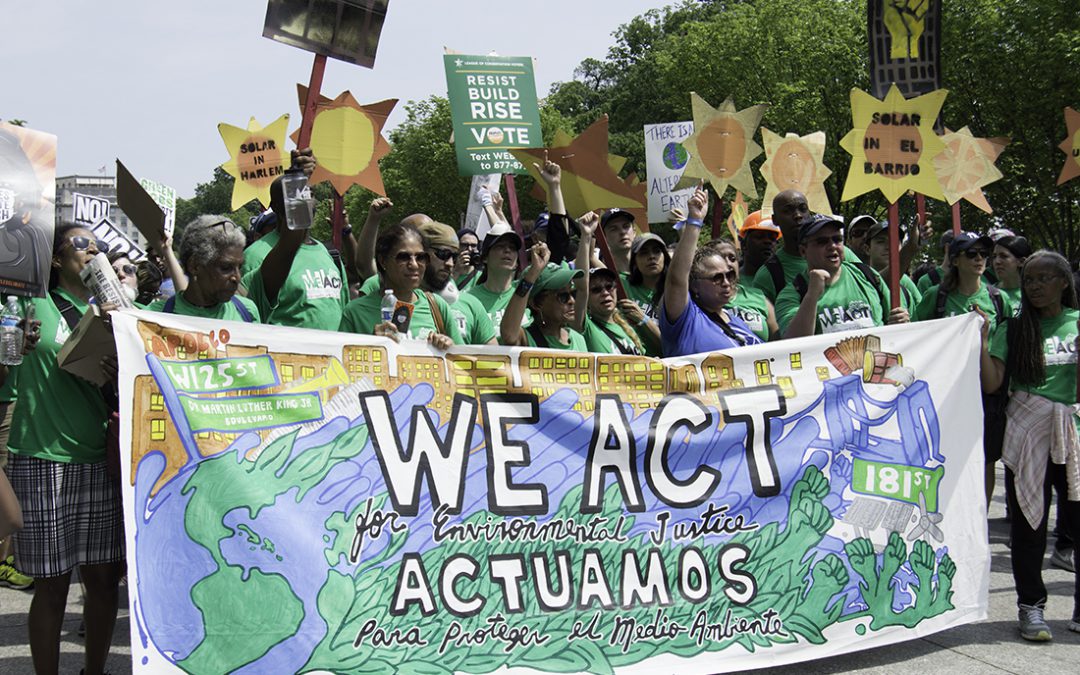This month, House Democrats passed the $3 trillion HEREOS Act. This act would give $50 million to Environmental Protection Agency grant programs aimed at alleviating environmental problems that disproportionately affect communities of color, including exacerbating susceptibility to COVID-19.
“We think that it is about high time that environmental justice communities are referenced and mentioned in this,” said Michele Roberts, national co-coordinator for the Environmental Justice Health Alliance for Chemical Policy Reform.
The funding from the act would go toward three environmental justice grant programs, according to an aide for Rep. A. Donald McEachin ( D-Va.) who sponsored a bill upon which the provision is based. The provision would also write the grant programs into law, according to a House Committee on Energy and Commerce press release, so they could not be eliminated by the EPA.
Some environmental problems that environmental justice communities face can affect their health.
Air pollution, for example, is associated with pre-existing conditions such as lung disease that can increase a person’s chance of dying from COVID-19, according to the manuscript of a study by the Harvard T.H. Chan School of Public Health. The study learned that a 1 mg/m3 increase in fine particular matter is correlated with an 8 percent increase in the death rate from the novel coronavirus.
“The communities that suffer environmental injustices that affect their underlying illnesses have higher rates of pulmonary diseases, which render them more at risk of dying from COVID-19,” said Rep. Raul Ruiz (D-Calif.) who authored legislation upon which the provision is based. Ruiz said the environmental justice grant programs need to be codified because “you never know” which administration will neglect or defund the programs.
“We’ve already seen the Trump administration roll back a lot of environmental protections, and we don’t see a lot of emphasis on protecting vulnerable populations that live in poverty that are most at risk of suffering the health impacts from environmental hazards,” he said.
According to McEachin’s aide, one of the programs that would receive new funding, the Environmental Justice Small Grant Program, allows community organizations to mitigate environmental problems in their areas. Another, the Environmental Justice Collaborative Problem-Solving Cooperative Agreement Program, helps community organizations partner with businesses, universities, and other groups to find solutions to health or environmental dilemmas. The third program, the Community Action for a Renewed Environment Grant Program, helps communities better understand the risks that pollutants pose, establish partnerships, and complete other tasks.
But one leader in the environmental protection space worries that the government may be too strict when deciding which projects it can give grants to. Gerald Torres, an environmental justice professor at Yale University, noted that the provision says the EPA “may only award grants under such programs for projects that will investigate or address the disproportionate impacts of the COVID-19 pandemic in environmental justice communities.” Torres worries that the provision may leave out factors that do not seem directly related to COVID-19 — like access to greenspace in a community — but that still impact people’s health.
Roberts said that, for decades, she and others have complained that disproportionate health impacts have been a “significant challenge” for environmental justice communities.
“With this COVID-19 situation, it has exacerbated the challenges in our communities with these health challenges,” she said. “We do need to have plans in place to better protect our communities that would include that of monitoring pollutants so that we can mitigate and hopefully eliminate some of these unnecessary pollutants on these communities.”
Kerene Tayloe, director of federal legislative affairs for WE ACT for Environmental Justice, praised the proposed extra grant funding but said that there is more to be done to benefit environmental justice communities. She said many affordable housing units have gas stoves, which can worsen indoor air quality. Her organization has recommended that public housing homes switch to electric stoves. She hopes that future federal and state legislation will address this issue.
While the House passed the HEROES Act, the Senate has yet to consider it.
Senate Majority Leader Mitch McConnell said he is in no hurry to pass more emergency funding.
“Whether it’s a stand-alone bill or not, if he’s opposed to it, then if you can’t change their minds, you have to change their seats,” McEachin said.
“We believe that we need to send money to these communities directly to help them fix their own problems, not that they created the problems, but fix the problems that are unique to their communities,” he said.

